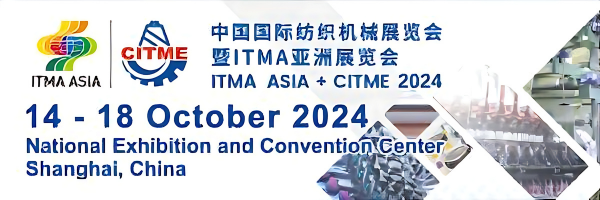The Government of Tamil Nadu on 18th April 2021 has imposed certain restrictions with effect from 20th April 2021 to curb the second wave of COVID-19 including 10 pm to 4 am time restrictions and lockdown on Sundays.
The textile industry, which is a labour-intensive one, has recently limbed back to normalcy consequent to the efforts taken by Government of India under “Atmanirbharbharat” and other COVID-19 relief measures.
Further, the textile units incurred huge expenditure to bring back the workers from various States, who left for their hometowns following countrywide lockdown last year.
In a press release, Chairman of the Southern India Mills’ Association (SIMA), Mr. Ashwin Chandran has appreciated the efforts and initiatives taken by the Tamil Nadu Government in curbing the spread of COVID-19 pandemic. However, he expressed his concern over the decision of stopping of industrial units during night hours between 10 pm and 4.00 am., and on Sundays. He stated that only recently the textile units resumed normalcy in production and in all other aspects. In such a situation, stopping the units during night hours and on Sundays would affect the production activities, exports and also the jobs of several lakhs of workers.
SIMA Chief has stated that the textile industry has to work 24 x 7 across the value chain especially in the case of spinning, weaving, knitting, processing and vertically integrated units and the shift timings are normally from 7 am to 3 pm, 3 pm to 11 pm and 11 pm to 7 am. He has stated that the textile employee mobility will be normally between 10 pm and 1 am for the third shift employees to report for work and the second shift employees to return home after completing the work at 11 pm.
Mr. Ashwin Chandran has stated that time restrictions between 10 pm and 4 am and lockdown on Sundays would curtail 2/3rd of the production as the manufacturing units would be in a position to work only in one shift for six days in a week and had to stop production for two shifts and also on Sundays. He stated that this would make over 75% of the workers jobless that would have severe impact on the industry and livelihood of the people. He has stated that the industry is taking all care to adopt SOPs and also vaccinating the employees of age 45 years and above on a fast track and therefore, such restrictions are not required for the manufacturing activities.
Mr. Ashwin Chandran has stated that most of the textiles and clothing manufacturing segments, viz., yarn manufacturing, fabric manufacturing, fabric bleaching / dyeing / printing and finishing involve sequence of processes at each segment and they are continuous in nature. He has stated that any stoppage would amount to huge loss, as the material on the machine and machinery condition might get affected apart from involving huge manpower loss.
SIMA Chairman, therefore, has appealed to the Government to include spinning, weaving, knitting, processing and vertically integrated textile units under continuous process industry category and permit them to run between 10 pm and 4 am and allow the managements and the employees to use their transport facilities to operate in the night shifts and work on Sundays also by strictly adhering to the SOPs prescribed by the Government.




















